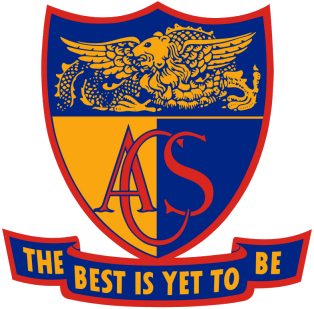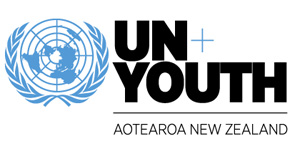A Bachelor of Arts is a bachelor's degree awarded for an undergraduate course or program in either the liberal arts, sciences, or both. Bachelor of Arts programs generally take three to four years depending on the country, institution, and specific specializations, majors, or minors. The word baccalaureus should not be confused with baccalaureatus, which refers to the one- to two-year postgraduate Bachelor of Arts with Honors degree in some countries.
The education system in New Zealand is a three-tier model which includes primary and intermediate schools, followed by secondary schools and tertiary education at universities and polytechnics. The academic year in New Zealand varies between institutions, but generally runs from early February until mid-December for primary schools, late January to late November or early December for secondary schools, and polytechnics, and from late February until mid-November for universities.
The Bachelor of Laws is an undergraduate degree in law originating in England and offered in Japan and most common law jurisdictions—except the United States and Canada—as the degree which allows a person to become a lawyer. It historically served this purpose in the U.S. as well, but was phased out in the mid-1960s in favor of the Juris Doctor degree, and Canada followed suit.
The Japan Exchange and Teaching Programme, or JET Programme, is a Japanese government initiative that brings college (university) graduates—mostly native speakers of English—to Japan as Assistant Language Teachers (ALTs) and Sports Education Advisors (SEAs) in Japanese kindergartens, elementary, junior high and high schools, or as Coordinators for International Relations (CIRs) in local governments and boards of education. JET Programme participants are collectively called JETs.

The University of Iceland is a public research university in Reykjavík, Iceland and the country's oldest and largest institution of higher education. Founded in 1911, it has grown steadily from a small civil servants' school to a modern comprehensive university, providing instruction for about 14,000 students in twenty-five faculties. Teaching and research is conducted in social sciences, humanities, law, medicine, natural sciences, engineering and teacher education. It has a campus concentrated around Suðurgata street in central Reykjavík, with additional facilities located in nearby areas as well as in the countryside.

Anglo-Chinese School (International), Singapore is a Methodist private school, owned by the Methodist Church in Singapore. Students take a 6-year course, with the IGCSE in the fourth year and the International Baccalaureate in the sixth year. Before 2007, students took the International A-Levels. The school opened its doors on January 2005 with 150 students of 20 different nationalities, located in Holland Village on the former premises of the now defunct Buona Vista Secondary School at 61 Jalan Hitam Manis. The current principal is Mr. Rob Burrough. The school need not seek permission from the Ministry of Education of admitting Singaporean students as it follows several of the Ministry's policies such as the MOE's bilingual policy and observe practices like singing the National Anthem, while the school runs its own programme. On 12 April 2004, the school was approved as one of the two proposals submitted among five proposals. The school was approved based on the strength of the management team, range of curriculum offerings, and the quality of education they could provide to the students.
The International Baccalaureate Diploma Programme (IBDP) is a two-year educational programme primarily aimed at 16 to 18 year olds. The programme provides an internationally accepted qualification for entry into higher education and is recognized by many universities worldwide. It was developed in the early to mid-1960s in Geneva, Switzerland, by a group of international educators. After a six-year pilot programme that ended in 1975, a bilingual diploma was established.

Hutt International Boys' School is a state integrated boys' secondary school in Trentham, Upper Hutt, New Zealand.
Auckland International College is an independent coeducational secondary school in Auckland, New Zealand. The primary focus of AIC is academic excellence. It adopts the IB Diploma Programme as its sole curriculum. It also offers a Preparation Year Programme for IB Diploma course to allow students to prepare for the IB curriculum. The school runs with a Northern Hemisphere timetable, as the school year commences in July, and students sit their final IB examinations in May. Since January 2018, AIC also offers a six-month course running from January to June for international students whose English is not at a high enough level to embark on the Year 11 Preparation Year Programme. The AIC English Course for Senior Secondary Studies is unique in that it covers all curriculum subjects, developing and improving English language skills required for further study in a New Zealand classroom.

Education in Ghana was mainly informal, and based on apprenticeship before the arrival of European settlers, who introduced a formal education system addressed to the elites. Pre-Independent Ghana was known as the Gold Coast. The economy of Pre-Colonial Gold Coast was mainly dependent on subsistence farming where farm produces were shared within households and members of each household specialized in providing their household with other necessities such as cooking utilities, shelter, home, clothing and furnitures. Trade with other households was therefore practiced in a very small scale. This has made economic activities in pre-colonial Gold Coast a family institution/customs; family owned and family controlled. As such, there was no need for employment outside the household which would have otherwise called for discipline(s), value(s) and skill(s) through a formal education system. Pre-Colonial Gold Cost therefore practiced an informal education(apprenticeship) until it was colonized and its economy became a hybrid of subsistence and formal economy.

Education in Guyana is provided largely by the government of Guyana, through the Ministry of Education and its arms in the ten different regions of the country. Guyana's education system is a legacy from its time as British Guiana, and is similar to that of the other anglophone member states of the Caribbean Community, which are affiliated to the Caribbean Examinations Council (CXC). School curricula, funding, standards and other policies are set by the central government and implemented through the Ministry of Education and related agencies. The Education System is divided into eleven districts, ten of which correspond to the national administrative and geographical regions of the country, while the capital, Georgetown, is treated as a separate education district. With 8.3% of its GDP spent on education, Guyana sits with Cuba, Iceland, Denmark and Botswana as among the few countries with top spending on education.
The New English School (NES) is a bilingual school located in Amman, Jordan, teaching A-levels and International GCSE.
Miras International School, Almaty is an international school providing both International Baccalaureate and Kazakh Curriculum in the foothills of Almaty, Kazakhstan.

New Zealand is a founding member of the United Nations, having taken part in 1945 in the United Nations Conference on International Organization in San Francisco.

Malcolm Sathiyanathan Adiseshiah, was an Indian development economist and educator. In 1976 he was awarded the Padma Bhushan by the Government of India, a civilian award given for "distinguished service of a high order...without distinction of race, occupation, position or sex." In 1998 the UNESCO created ‘The Malcolm Adiseshiah International Literacy Prize’ in recognition of his contribution to education and literacy.

UN Youth New Zealand creates opportunities for young New Zealanders to engage with pressing global affairs and lead in the spirit of the United Nations. The charity primarily holds Model United Nations events for high-school and tertiary students, as well as outreach programmes and workshops.

International School of Nanshan Shenzhen, formerly the International School of Sino-Canada, is an international school in Nanshan District of Shenzhen, China.

The International Year of Light and Light-based Technologies 2015 or International Year of Light 2015 was a United Nations observance that aimed to raise awareness of the achievements of light science and its applications, and its importance to humankind. Under the leadership of UNESCO, the IYL 2015 brought together hundreds of national and international partners to organize more than 13,000 activities in 147 countries. The audience reached by the IYL 2015 is estimated to be over 100 million.
Bishkek International School is an international school in Bishkek founded by a group of international and local parents as a non-profit community school and legally registered as a non-profit foundation in the Kyrgyz Republic on December 1, 2010. The first school Advisory Council meeting was held with the President of the Kyrgyz Republic, Roza Otunbaeva, on May 16, 2011 in the Ministry of Education. The school opened for students in September 2011, in a building which was built as a school but unused for this purpose for many years before being purchased by the school foundation in July 2011. Student numbers have increased from 20 students in 2011 to over 260 students in 2018. The school was initially called the 'European School in Central Asia' and changed to 'ESCA - Bishkek International School' (BIS) in 2016 to coincide with accreditation as an IB World School.
World Science Day for Peace and Development highlights the important role that science has in society and is celebrated each year on November 10. It also highlights the need to engage the wider public in debates on emerging scientific issues. World Science Day was proclaimed by the United Nations Educational, Scientific and Cultural Organization (UNESCO) in 2001 and celebrated for the first time in 2002.












